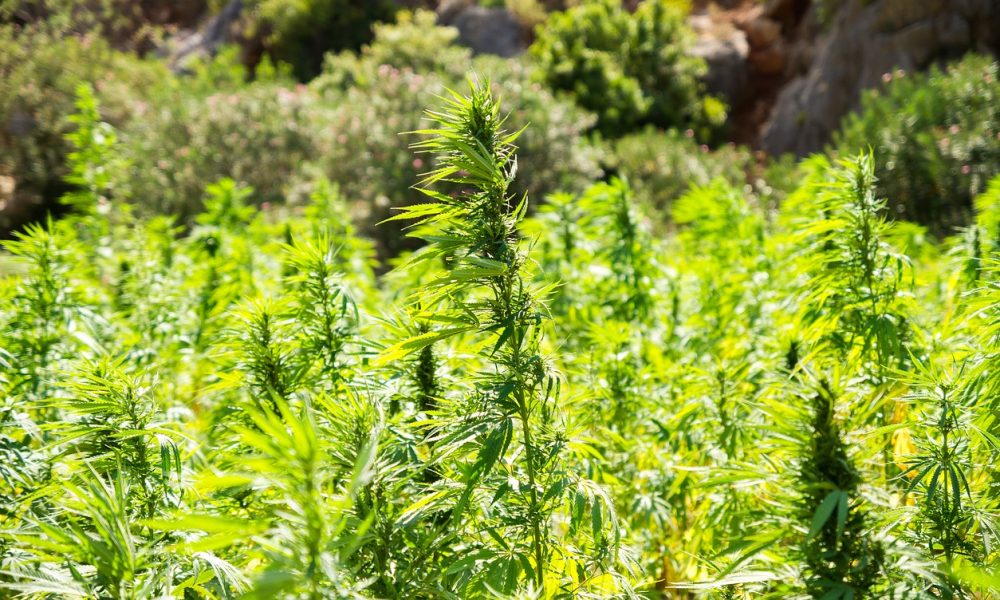The North Dakota House of Representatives approved a resolution on Monday that encourages residents to buy U.S. flags that are made out of hemp and manufactured in the state.
The concurrent resolution, which is being sponsored by five House members and three senators, cleared the full chamber in a voice vote. This comes days after the House Agriculture Committee advanced the measure.
“House Concurrent Resolution 3004 was, with all respect, run up the flagpole” in committee, Rep. Bill Tveit (R) punned on the floor before reading through the text.
The “whereas” section of the legislation, which now heads to the Senate, says that “historians assert the first United States flags were made from hemp,” and the crop is both stronger than cotton and “fades less than other fabrics.”
“North Dakota citizens should demonstrate their patriotism by supporting local businesses in our state which manufacture United States flags made out of durable materials, such as hemp,” it continues.
The resolution wouldn’t require flags to be made out of hemp, but if it’s ultimately enacted, the legislature would be formally encouraging residents purchase flags produced from the cannabis crop.
During its committee hearing last week, bill sponsor Rep. David Monson (R) took a question about whether smell-related issues could arise with people burning hemp flags, and he assured the fellow lawmaker that it wouldn’t be a problem.
The resolution also has the support of the state Department of Agriculture.
—
Marijuana Moment is tracking hundreds of cannabis, psychedelics and drug policy bills in state legislatures and Congress this year. Patreon supporters pledging at least $25/month get access to our interactive maps, charts and hearing calendar so they don’t miss any developments.
Learn more about our marijuana bill tracker and become a supporter on Patreon to get access.
—
Relatedly, the governor of New York recently signed a bill aimed at expanding the state’s hemp market by promoting collaborative partnerships to identify more opportunities to utilize the crop and its derivatives for packaging, construction and other purposes.
In Pennsylvania, officials announced late last year that they will be providing up to $200,000 in matched funding for marketing projects to promote the state’s hemp market.
Meanwhile, Army soldiers aren’t allowed to use hemp-derived CBD even if its federally legal—but the military branch solicited information last year about using hemp yarn in uniforms to help camouflage snipers.
Separately, the U.S. Department of Energy (DOE) awarded funds to researchers last year to develop 3D-printed hempcrete to be used in building affordable housing.
DOE is also sponsoring a project to develop hemp fiber insulation that’s designed to be better for the environment and public health than conventional preparations are, the agency announced in 2021.
The Environmental Protection Agency (EPA) also announced in 2021 that it was awarding a Washington State-based company a $100,000 grant to support the development of sustainable bricks made from industrial hemp.
All of these are examples of how governments across the country have come to embrace hemp and its various uses since the crop was federally legalized under the 2018 Farm Bill.
Back in North Dakota, meanwhile, voters rejected a ballot initiative to legalize marijuana during the November election.
The initiative was similar to a bill that was introduced in the legislature in 2021. The proposal from Rep. Jason Dockter (R) passed the House, but it was defeated in the full Senate after advancing out of committee there.
North Dakota voters approved a medical cannabis ballot measure in 2016.
Minnesota Governor Proposes Marijuana Legalization And Expungements Funding In Budget Request
Photo courtesy of Pixabay.
Read the full article here









